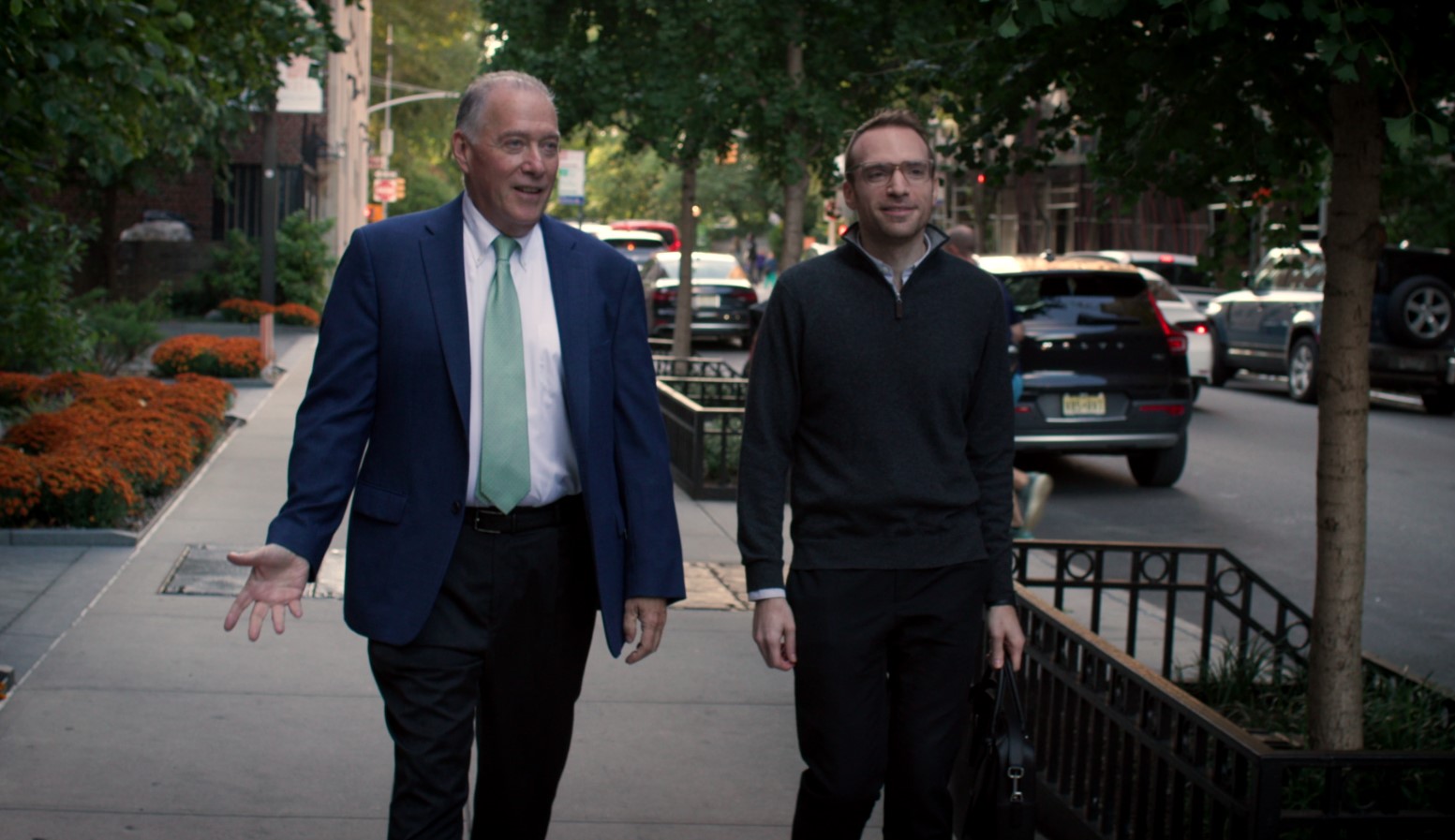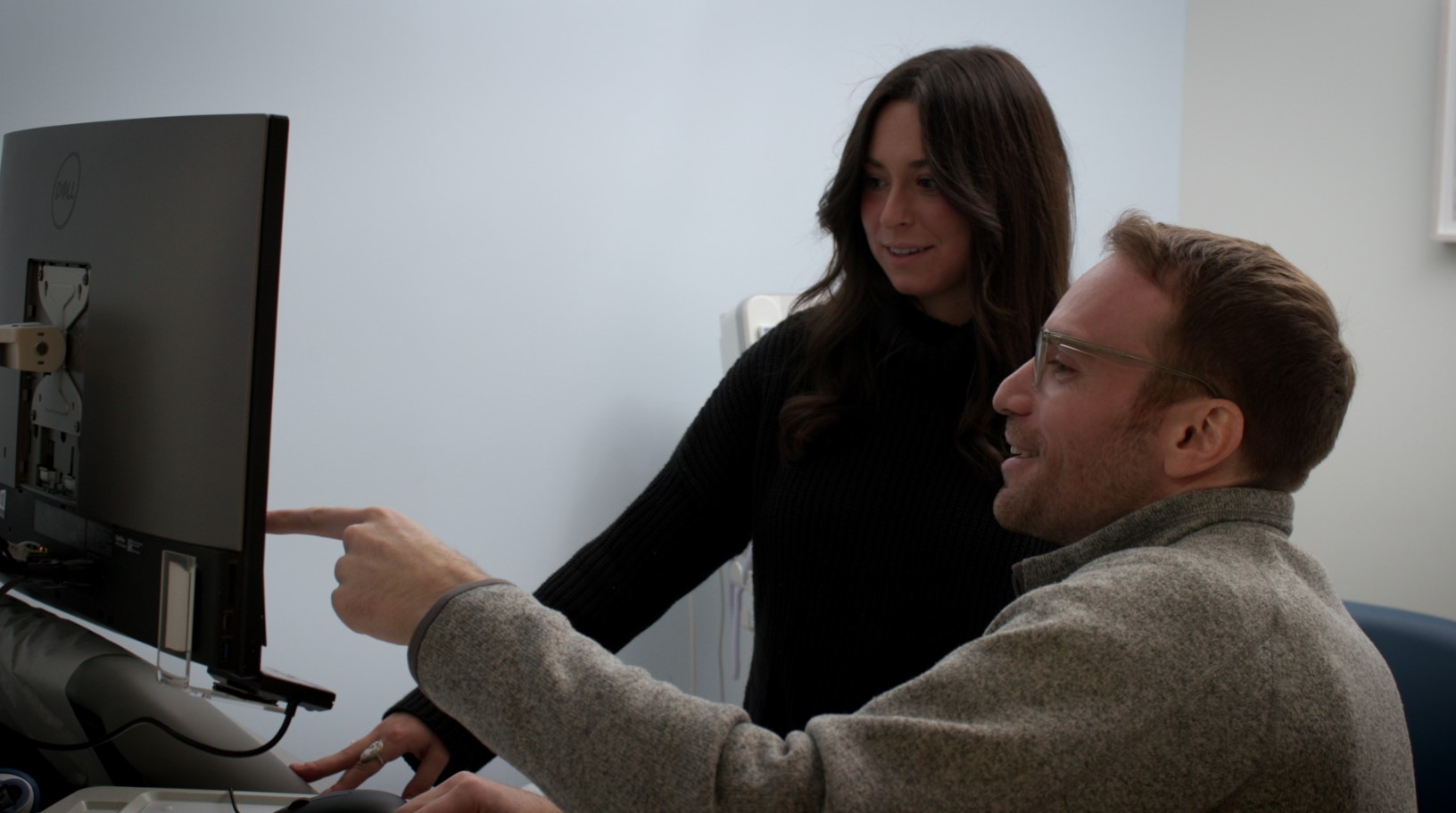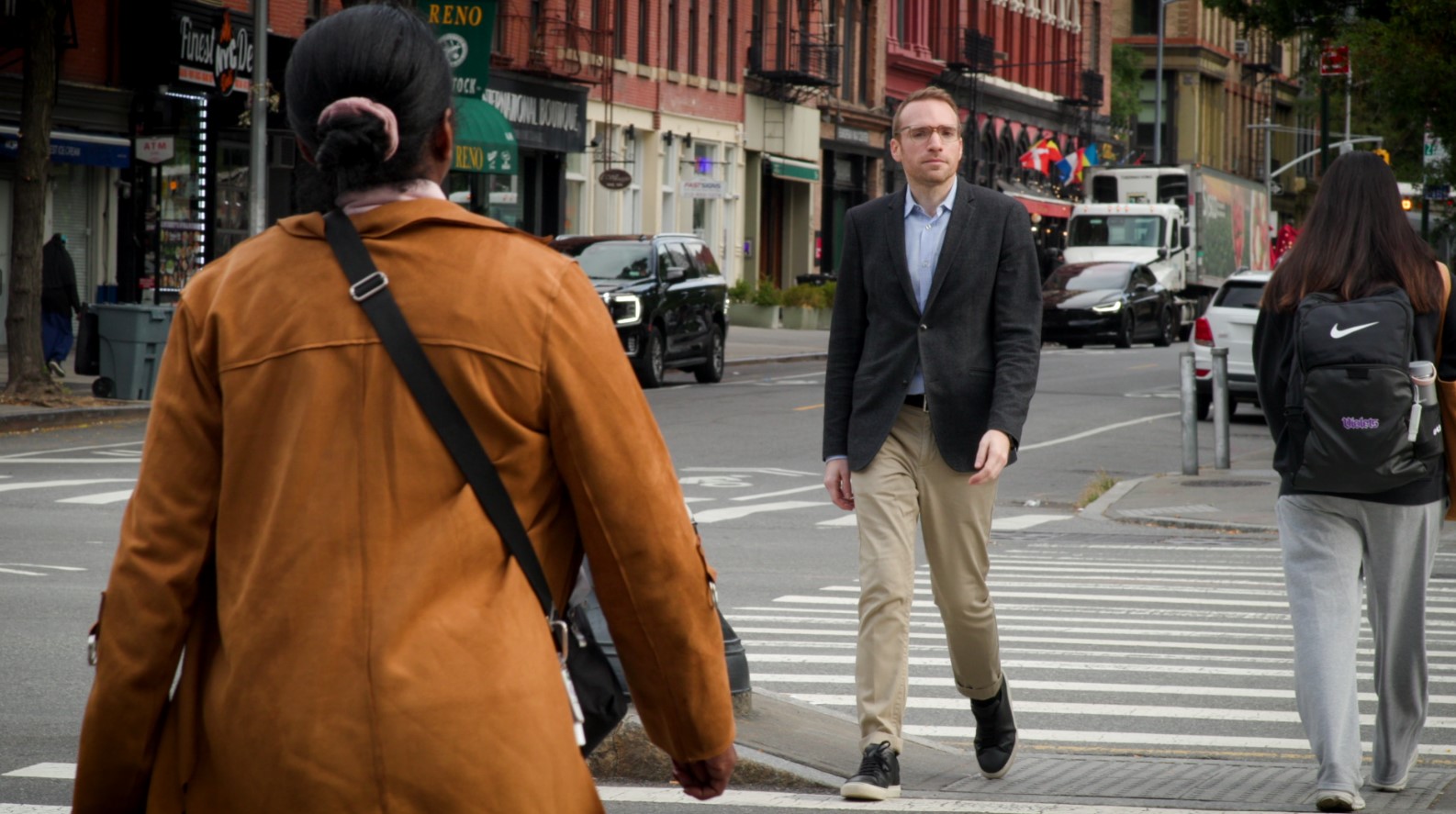Associate Professor, Division of Gastroenterology and Hepatology, Department of Medicine, NYU Grossman School of Medicine; Co-Director, Inflammatory Bowel Disease Center at NYU Langone Health, NY
Like many people with Crohn’s, Dr. Jordan Axelrad was leading a normal life until it was interrupted by disease in his late teenage years.
“I was actually very lucky,” said Dr. Axelrad. “My grandfather was a doctor, and my father is a dentist, so I got into care quickly. I now take care of a lot of patients who have suffered for years without help.”
In other ways, he said, his story was quite similar in that he experienced the denialism that comes with youth.
“When you’re 19 and you learn you have IBD, you think, ‘Okay, just give me whatever pill I need to get rid of this, and I’ll go back to my life.’ Obviously, it wasn’t like that.”
Early on in his medical training, Dr. Axelrad did not immediately gravitate toward an IBD specialty. Instead, he thought he wanted to shape policy through a public health degree.
“Now,” he said, “I look back and it seems as if IBD was the obvious pathway all along. These diseases affect young people, making their lives and journeys very complicated. It gives me insight into understanding a lot of their struggles.”

Since he joined NYU seven years ago — drawn by the institution’s unique culture and the opportunity to build an IBD program from the ground up — Dr. Axelrad has helped the young program evolve into an internationally recognized IBD center with funding from the National Institutes of Health (NIH), the Crohn’s and Colitis Foundation (CCF), and others.
In that time, Dr. Axelrad has pursued multiple fields of research, all informed by the needs of people living with IBD, and has published findings that are helping to guide patient care.
One of his most significant endeavors was inspired by his own experience and amplified by his interactions with patients.
“The first question patients ask me, ‘Is this medication going to cause cancer?’ That led me to research cancer risk in people with IBD.”
For more than a decade, Dr. Axelrad has worked to research the link between cancer and the use of certain therapies. Dr. Axelrad’s research showed that immunosuppressive IBD medication use following a cancer diagnosis did not significantly impact the risk of new or recurrent cancer – providing the much-needed reassurance patients were seeking.
His findings also led to funding for the first national prospective registry of people with IBD and cancer, called SAPPHIRE (SAfety of Immunosuppression in a Prospective Cohort of Inflammatory Bowel Disease Patients with a HIstoRy of CancEr), which Dr. Axelrad co-leads.

Now Dr. Axelrad is working to understand how infections, like norovirus and Clostridioides difficile, contribute to IBD through the gut microbiome and mucosal immunity. He hopes the research will lay the groundwork for future studies designed to test interventions to prevent IBD.
Preliminary data has been presented at multiple international conferences and has laid the foundation for a Career Development Award from CCF and an NIH Mentored Patient-Oriented Research Career Development Award (K23).
As he studies changes in the gut microbiome in patients experiencing both infections and flares of IBD, he’s also leading research focused on predicting therapeutic response.

Within his lab, he established the NYU Langone IBD Biospecimen Repository and started an intestinal organoid research program that uses tissue biopsies to study IBD pathogenesis and therapeutic response. While organoids have been used in cancer research for many years – looking at the microenvironment of a tumor and medicines for different cancer subtypes — Dr. Axelrad’s lab is applying that science to IBD. His research has already helped to identify patients who may benefit from a certain JAK inhibitor.
“My goal is to make this approach scalable so we can determine the right medicine for an individual patient and avoid wasting time — sometimes 12 to 16 weeks — on one that’s never going to work for them.”
Dr. Axelrad’s research program incorporates cutting-edge techniques, including advanced cell culture and multimodal sequencing platforms to bridge clinical and basic research.
His efforts have led to an impressive number of publications — 22 original, peer-reviewed articles in the past year alone, including a co-first author paper in Gastroenterology.
As a New York City resident, Dr. Axelrad is especially attuned to disparities in healthcare and has devoted part of his time to finding solutions. This led him to conduct focus group research at Bellevue Hospital – the largest public hospital in NYC and academically under the purview of NYU — to better understand the factors that impact outcomes in underserved communities.

From Bellevue’s patients, Dr. Axelrad learned that lack of clear communication and advocacy was a major barrier. His work revealed that ‘patient navigators’ who help patients wade through the intricacies of the healthcare system could play a vital role in connecting patients to care and improving adherence to treatments. As a result of this research, Bellevue is now investing in a new patient navigator position for its IBD patients.
Recently promoted to Associate Professor of Medicine at NYU Grossman School of Medicine, Dr. Axelrad is also a mentor to dozens of trainees. He brings to these relationships what he’s learned from his own mentors: giving his time to help them advance their professional goals.
This theme of time comes up often regardless of which hat he’s wearing — as a patient grappling with time lost trying to manage the disease; as a clinician giving time back to his patients to enjoy a high quality of life; as a researcher putting in the time it takes to build a world-class IBD center; or as a mentor giving his time to support the next generation of providers.
“All that wasted time in my youth, when I was grappling with Crohn’s wasn’t for nothing. It led me here. That makes me feel like I’m exactly where I need to be to keep driving progress and make a difference for all of us living with this disease.”